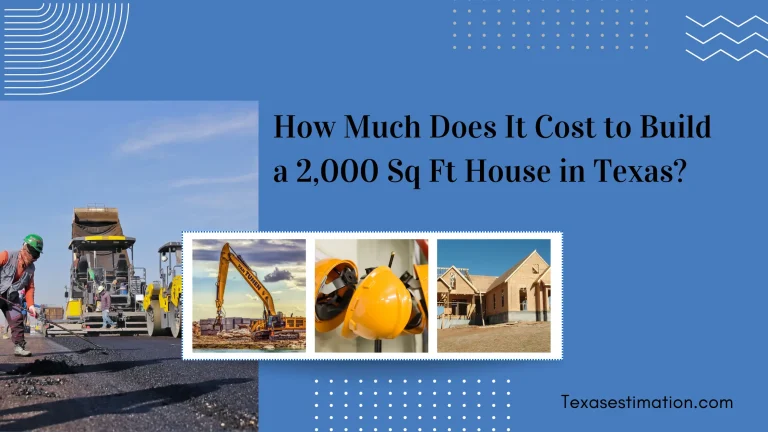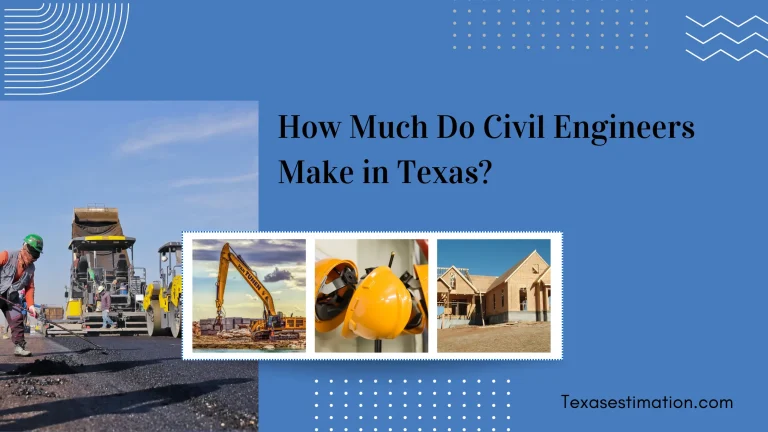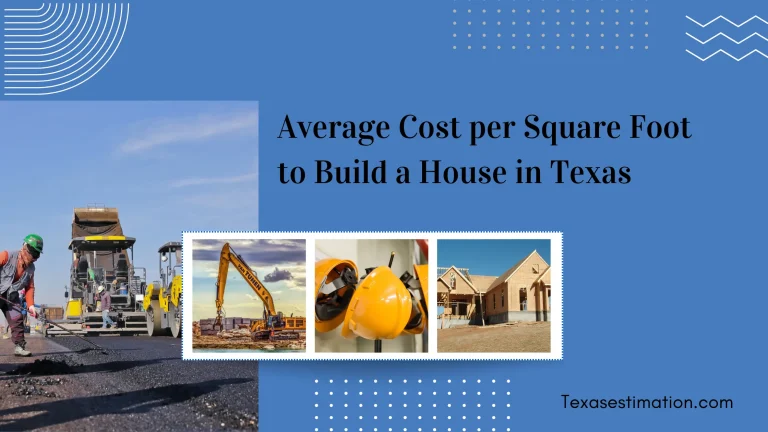Is New Construction Tax-Exempt in Texas?
Last Updated:October 2, 2025
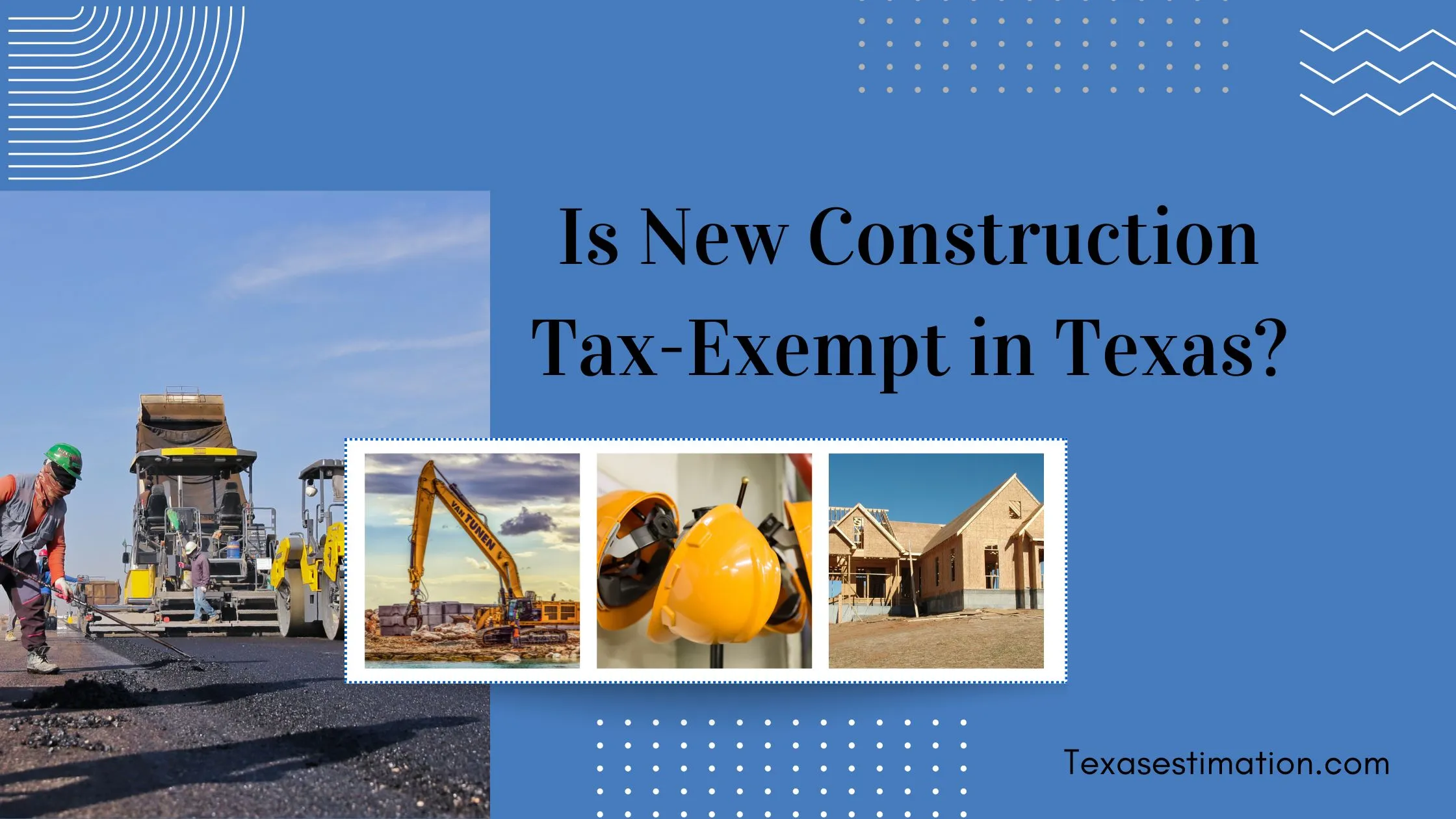
Property taxes are crucial in funding local government services such as schools and infrastructure in Texas. However, Texas stands out because it doesn’t impose a state-level property tax. Instead, regional entities, including cities, counties, and school districts, set property taxes. While Texas doesn’t offer blanket property tax exemptions for all new construction, there are situations where newly built properties can qualify for temporary tax exemptions or incentives.
These exemptions are often designed to encourage development, stimulate economic growth, and revitalize certain areas. Sales tax is typically applied to the materials and services used in construction unless the project or the purchaser qualifies for a specific exemption. Texas’s standard sales tax rate is 6.25%, with additional local taxes that can bring the total rate to 8.25%. This tax applies to most tangible goods and taxable services involved in construction.
Who Qualifies for Tax Exemptions On New Construction?
Not all entities or projects are eligible for tax exemptions, However, Texas law does provide several avenues for tax exemptions, particularly for projects tied to specific organizations or community-driven initiatives.
For example, nonprofit entities, government buildings, or projects in designated economic zones may be eligible for tax exemptions, helping reduce the financial burden and support development efforts.
Government Projects
Government projects, including those commissioned by federal, state, or local governments, are typically tax-exempt. This exemption extends to materials and labor when the government entity is directly involved in the purchase.
Examples of government projects include:
- Public schools and universities
- Municipal building and infrastructure
- State-funded hospital
Nonprofit Organizations
Nonprofit organizations, including church groups, school associations, and volunteer organizations, are sometimes exempt from paying sales tax on new construction. The new building will be used for one or more tax-exempt purposes, such as worship, education, or charity.
- A church constructing a new sanctuary is likely exempt from sales tax on building materials.
- A nonprofit hospital building a new wing may also be eligible for exemptions.
Developers of Affordable Housing
Developments of affordable housing by nonprofit developers or public housing agencies qualify for tax exemptions on construction materials. This type of development often caters to low-income family solutions and requires pre-approval from the Texas Comptroller’s Office.
Manufacturers and Agricultural Producers
Manufacturers and farming producers with new construction for a specific purpose can also file for exemptions. For example;
- Manufactures: Factory buildings used exclusively for manufacturing processes are usually qualified for tax exemptions on machinery, equipment, and specific materials.
- Agricultural producers: Barns, silos, and similar structures used for farming may qualify for exemptions under the Texas Agricultural Exemption.
Educational and Religious Institutions
Tax exemptions also apply to educational, religious, and other organizations that build facilities to operate schools or places of worship. These exemptions usually condition upon the building having its primary exempt use by the organization.
Tax Incentives for New Construction
Several tax incentives are available to reduce the financial burden when building or expanding properties in Texas for business or development purposes. While new construction isn’t automatically tax-exempt, some specific programs and exemptions can significantly lower costs for developers, especially in economic development zones.
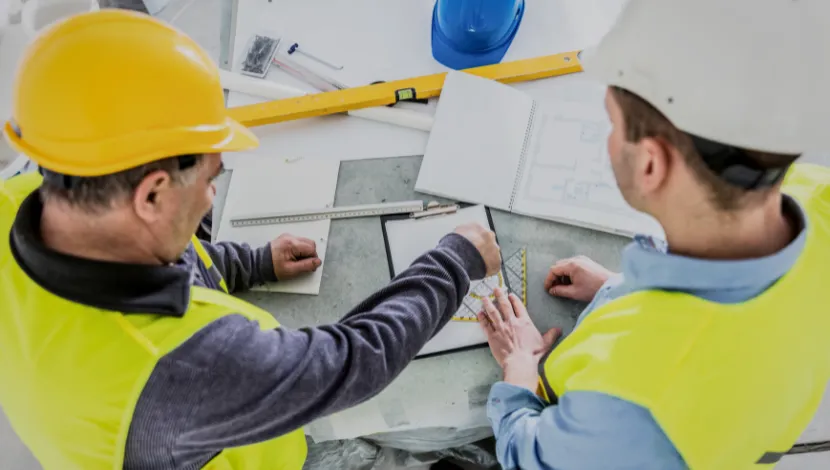
Getting a detailed Texas construction cost analysis is essential for the developers because it will make them analyze how these incentives can be used to optimize the project budget, thereby ensuring cost-effective decisions at all stages of development.
Tax Abatement Program
The local government in Texas has tax abatement programs to boost that state’s economy. These are mainly targeted towards commercial entities, such as businesses and other substantial construction projects, not households.
Under these programs, businesses may receive temporary property tax breaks for helping to create jobs or expand the local economy. For instance, a company setting up a new factory or office complex might enjoy tax cuts for several years to encourage investment.
Chapter 313 Agreement
This is one of the most impressive in Texas, that is Chapter 313 Agreement. These are usually targeted toward those industries promising employment and economic growth. Generally, such programs are typically utilized for industries or businesses like industry or commerce.
The local authorities can offer tax abatements for new buildings and structures if the project brings about local economic benefits of substantial value.
Exemption of Sales Tax on Construction Materials
While you pay sales tax on construction material in Texas, some specific projects may qualify for tax exemptions. If you are building for a tax-exempt organization, such as a nonprofit, or if the project qualifies for exemptions, such as a government building or a school, you may buy construction materials without paying sales tax, which will help reduce the overall cost of your construction project.
Property Tax on Improvement
For example, when you build a new improvement or improve the existing property, the chances are that your property taxes will rise because property tax appraisals reflect the creased value of land and the latest enhancements. Though new construction is not tax-free, the added value to your building or improvements will be taxed proportionately and will be reflected in your annual property tax statement.
Economic Development Zone
Several areas in Texas are recognized as Economic Development Zones or Tax Increment Reinvestment Zones (TIRZ). All these zones offer extra tax benefits for new construction. Local governments offer rebates for the proper tax reductions to businesses and developers who choose to invest in this zone.
Taxable Vs Non-Taxable Components in New Construction
Even though the project is tax-exempt, not all construction elements qualify in some situations. It is, therefore, fundamental to differentiate between taxable and non-taxable components.
| Taxable Components | Non-Taxable Components |
| 1. Demolition Labor: Labor for demolition activities unless part of a tax-exempt project. | 1. Labor for Tax-Exempt Facilities: Labor costs for building tax-exempt facilities like schools, hospitals, or churches. |
| 2. Excavation Services: Site preparation and excavation labor, unless used for a tax-exempt project. | 2. Materials Purchased by Tax-Exempt Entities: Materials directly purchased by tax-exempt entities (e.g., government or nonprofit organizations). |
| 3. Materials for Contractors: Materials purchased by contractors not working for tax-exempt organizations. | 3. Materials for Nonprofit or Government Projects: Materials purchased for government, educational, or charitable projects that qualify for tax exemptions. |
| 4. Equipment Rentals: Machinery and equipment rentals used in taxable construction activities. | 4. Energy-Efficient Materials: Certain energy-efficient building materials purchased for tax-exempt green buildings may be non-taxable. |
| 5. Subcontractor Services: Services provided by subcontractors on taxable construction projects. | 5. Subcontractor Services for Exempt Projects: Services subcontractors provide on tax-exempt projects such as public buildings or nonprofit structures |
How to Claim Tax Exemption For New Construction in Texas?
If your new construction project qualifies for a tax exemption, here’s how to claim it:
Obtain an Exemption Certificate
During the procurement of materials, tax-exempt entities like nonprofits and public bodies must issue exemption certificates to the vendors. This certificate verifies that they are tax-exempt.
Engage Educated Contractors
Contractors should comprehend the exemption laws and when to apply them. For instance, A construction company executing tax-exempt construction of a church should ensure that all materials purchased are nontaxable.
Labor performed on new builds towards a qualified entity should be exempt from sales tax.
Advance Approval for Specific Projects
Advance approval from the Texas Comptroller may be necessary for affordable housing or manufacturing plants. But wait until construction begins. Also, apply for these exemptions much in advance..
Conclusion
New Texas construction is not automatically exempt from taxes. Still, it does qualify on a case-by-case basis, depending on the type of entity commissioning work and the purpose of the construction. A few examples that commonly qualify for exemptions are non-profits, governmental agency projects, affordable housing initiatives, and agricultural or manufacturing facilities, often for materials.
Consult a tax professional or the Texas Comptroller of Public Accounts if your project qualifies. Proper preparation and documentation will help assure compliance, and you will be saving money on your new construction project.
Recent Post
-
How Much Does It Cost to Build a 2,000 Sq Ft House in Texas?
Building a house is often one of the most significant investments a person can make. For those planning to construct a 2,000 sq. ft. on average, the cost to build…
-
How Much Do Civil Engineers Make in Texas?
With the rapid development of infrastructure and construction in Texas, the demand for skilled civil engineers is always high. The average salary range is usually between $75,000 and $125,000 annually. However, this…
-
Average Cost Per Square Foot to Build a House in Texas
The average cost per square foot to build a home in Texas is between $100 to $150 per square foot for standard construction. Assuming standard finishes and simple design, this would bring…

